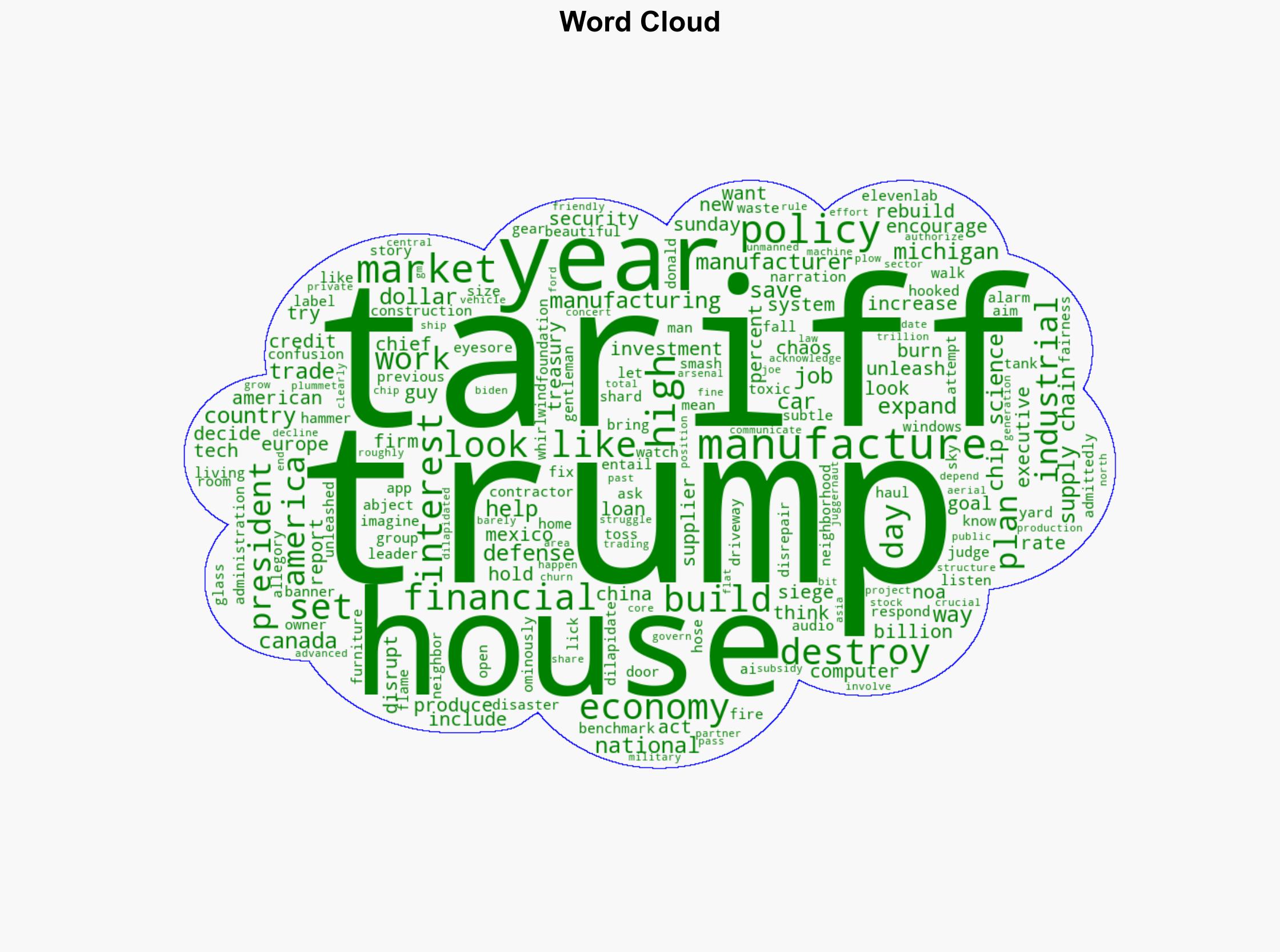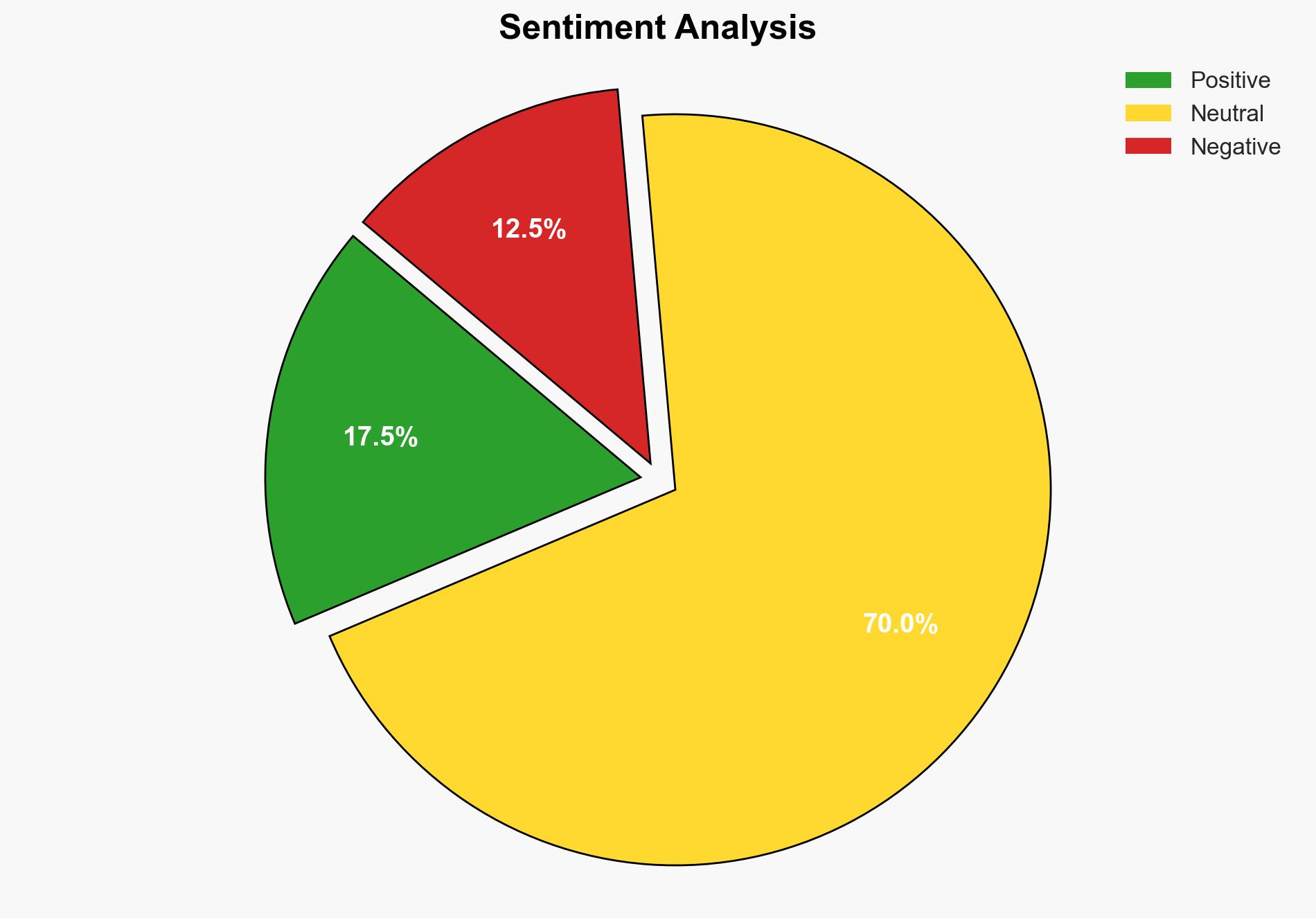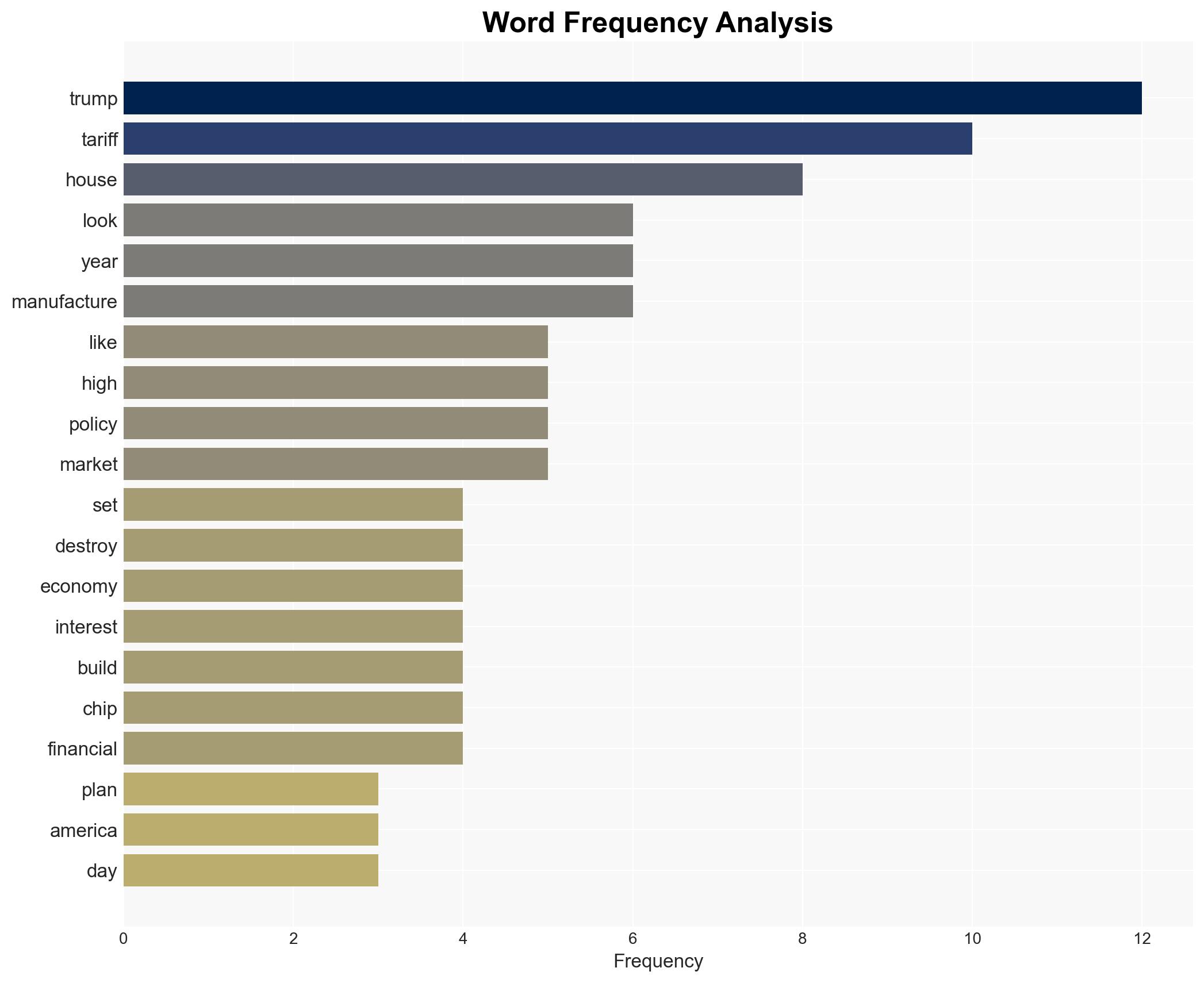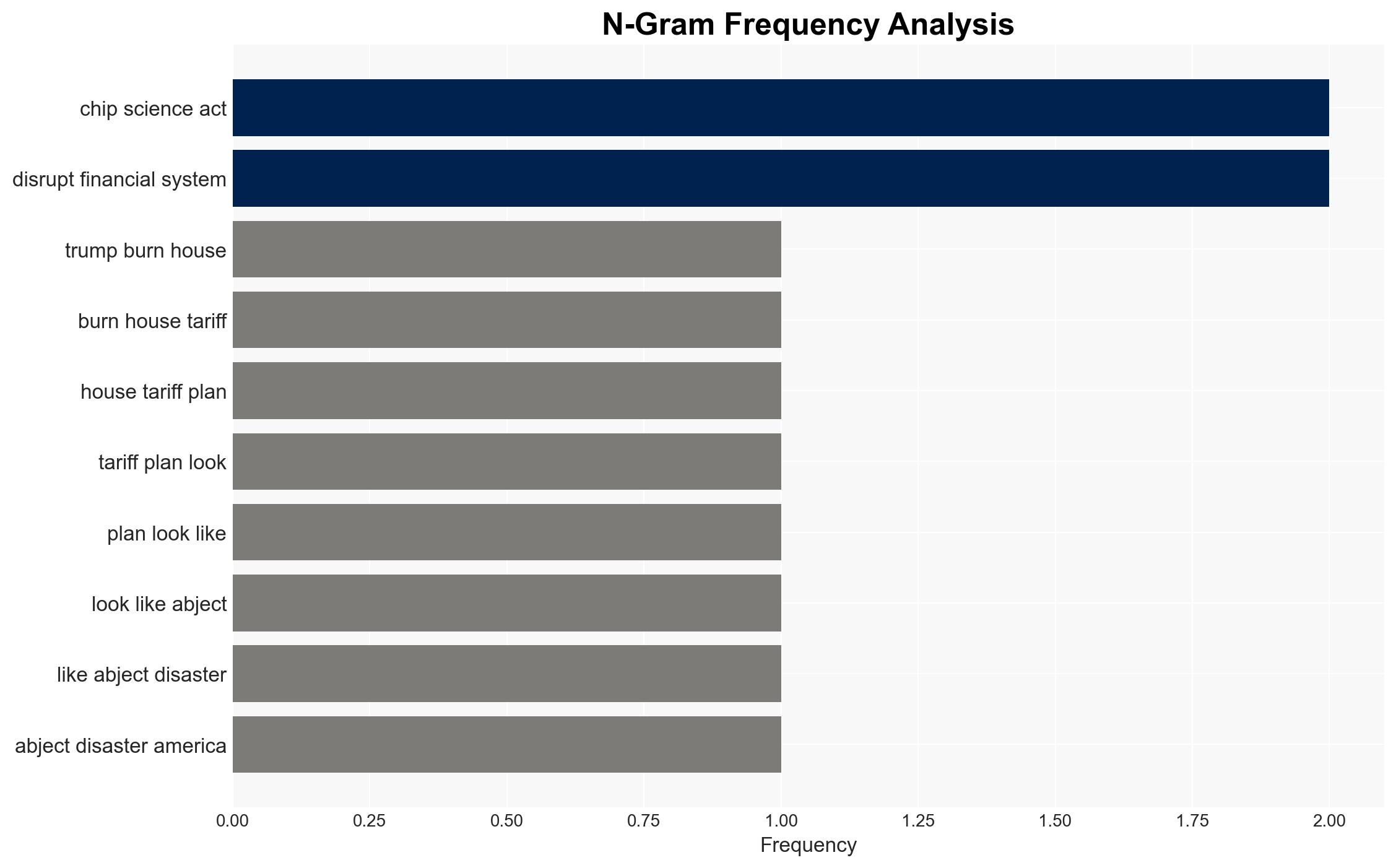The Dumbest Economic Policy in Modern History – The Atlantic
Published on: 2025-04-09
Intelligence Report: The Dumbest Economic Policy in Modern History – The Atlantic
1. BLUF (Bottom Line Up Front)
The economic policy referred to as “The Dumbest Economic Policy in Modern History” has resulted in significant disruption to the U.S. manufacturing sector. Key findings indicate that the policy, characterized by aggressive tariffs, has led to increased costs for manufacturers, strained international trade relationships, and hindered economic growth. Immediate action is recommended to reassess and potentially reverse these tariffs to stabilize the market and restore confidence among international allies and domestic industries.
2. Detailed Analysis
The following structured analytic techniques have been applied for this analysis:
General Analysis
The policy implemented by Donald Trump involved imposing high tariffs on imports from key trading partners, including Mexico, Canada, and European countries. This approach was intended to bolster domestic manufacturing but instead created a chaotic economic environment. The tariffs have led to increased costs for raw materials and components, particularly in the automotive and technology sectors. The policy has also disrupted supply chains and strained diplomatic relations with traditional allies, undermining efforts to build a cohesive trade alliance against economic competitors like China.
3. Implications and Strategic Risks
The strategic risks associated with this policy include a decline in U.S. manufacturing competitiveness, potential retaliatory tariffs from affected countries, and a decrease in foreign investment. The policy has also contributed to financial market instability, with credit markets becoming less accessible for manufacturing firms. The long-term impact could see a shift in global manufacturing power towards countries with more stable trade policies, potentially compromising national security interests tied to technological advancements and military capabilities.
4. Recommendations and Outlook
Recommendations:
- Reevaluate the current tariff strategy and consider reducing or eliminating tariffs that have proven detrimental to U.S. economic interests.
- Engage in diplomatic efforts to rebuild trade relationships with affected countries, focusing on collaborative economic growth and stability.
- Encourage investment in domestic manufacturing through incentives and support for technological innovation, rather than relying solely on protectionist measures.
Outlook:
Best-case scenario: The U.S. revises its tariff policy, leading to improved trade relations and a revitalized manufacturing sector. Economic growth resumes, and the U.S. strengthens its position in global markets.
Worst-case scenario: Continued tariff policies result in prolonged economic stagnation, further alienation of international allies, and a loss of manufacturing capabilities to global competitors.
Most likely outcome: Incremental policy adjustments lead to gradual stabilization, with mixed results in terms of economic recovery and international trade dynamics.
5. Key Individuals and Entities
The report references Donald Trump and Joe Biden as significant figures in the context of U.S. economic policy. The analysis also involves key entities such as U.S. manufacturing firms, international trade partners, and financial markets affected by the tariff strategy.




